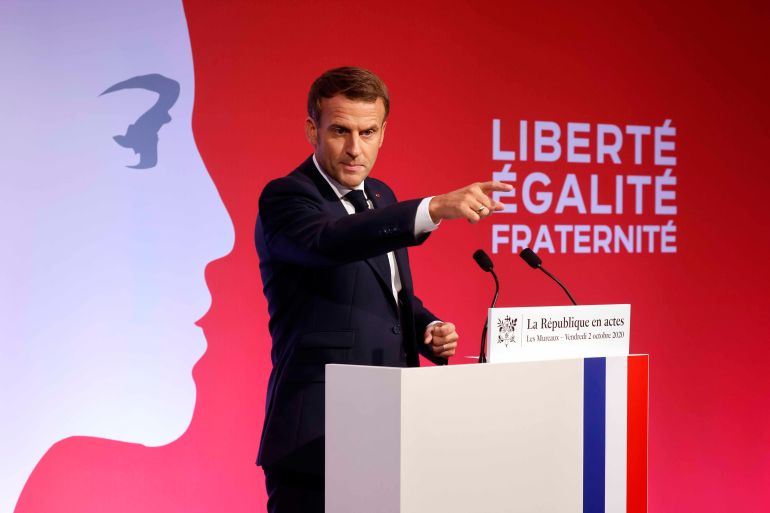France reveals details of controversial ‘separatism’ bill
The bill, supported by President Macron, aims to regulate Muslim spaces such as mosques, and will now be debated in Parliament.

France’s draft law aimed at tackling what the government terms “Islamist radicalism” was unveiled on Wednesday.
President Emmanuel Macron has promoted the bill to target what he calls “separatists” undermining the nation, but rights groups have raised concerns over the law, saying it would discriminate against French Muslims.
Among notable measures is making school obligatory from age three with the ability to opt-out in favour of homeschooling for special cases only. The measure is aimed at ending so-called “clandestine” schools run by hardliners.
Another article encourages mosques to register as places of worship, so as to better identify them. Many of the nation’s more than 2,600 mosques currently operate under rules for associations. Foreign funding for mosques, while not forbidden, would have to be declared if more than 10,000 euros ($12,000).
The draft law would make it a crime punishable by fines and up to one year in prison for a doctor to provide a young woman with virginity certificates, sometimes demanded ahead of marriage.
French doctors and Muslim feminists are also against such certificates, but some have argued against an outright ban, saying it could harm women who could face violence without them.
To do away with forced marriages, a measure in the bill requires the couple to meet separately for an interview with an official when there is a doubt about free consent. If the doubt persists, the official must take the issue to a prosecutor who could forbid the marriage.
Those practising polygamy would be forbidden French residence cards.
When Macron spoke about the bill earlier this year in an attempt to drum up support, he said Islam was a “religion in crisis” globally – a comment that upset Muslims across the world and led to anti-France protests.
But Prime Minister Jean Castex and others insist the text “is not against religions”.
Neither the word Islam nor Muslim are named in the text made up of about 50 articles aimed at enabling better oversight of mosques, associations, public services and schools – and hoped to further protect French secularism, which is already enshrined in law.
Parliament is expected to open what is likely to be a lively debate on the draft law in the months ahead.
The measure is now known by the delicate title, Supporting Republican Principles.
Castex said those whose project is to “divide and spread hate and violence” are at the centre of “separatism”.
Separatism is especially dangerous because it “is the manifestation of a conscious, theorised, political-religious project with an ambition to make religious norms predominate over the law,” he said at a news conference.
In an interview with newspaper Le Monde he said the nature of a law is long-term and it would apply to any political ideology that threatens French values, “even if today it is radical Islamism that we try by all means to fight.”